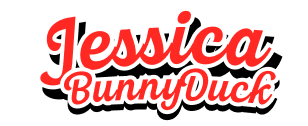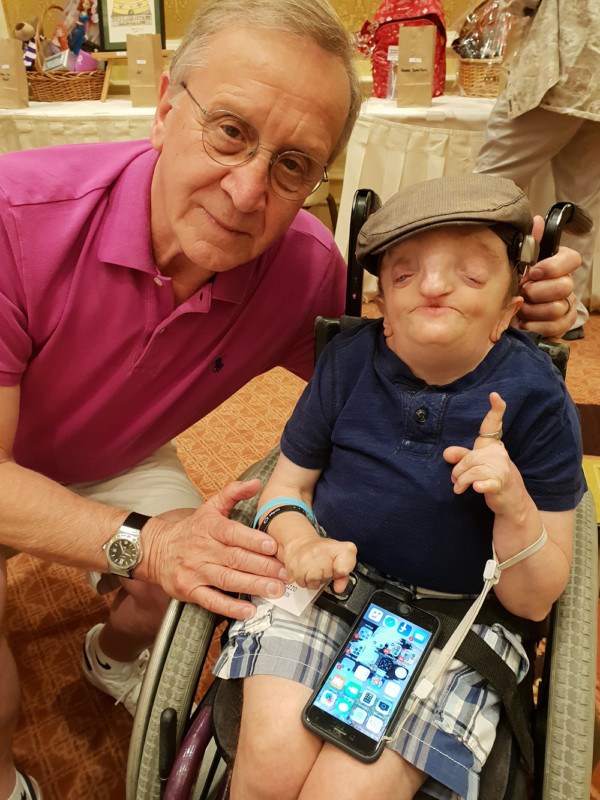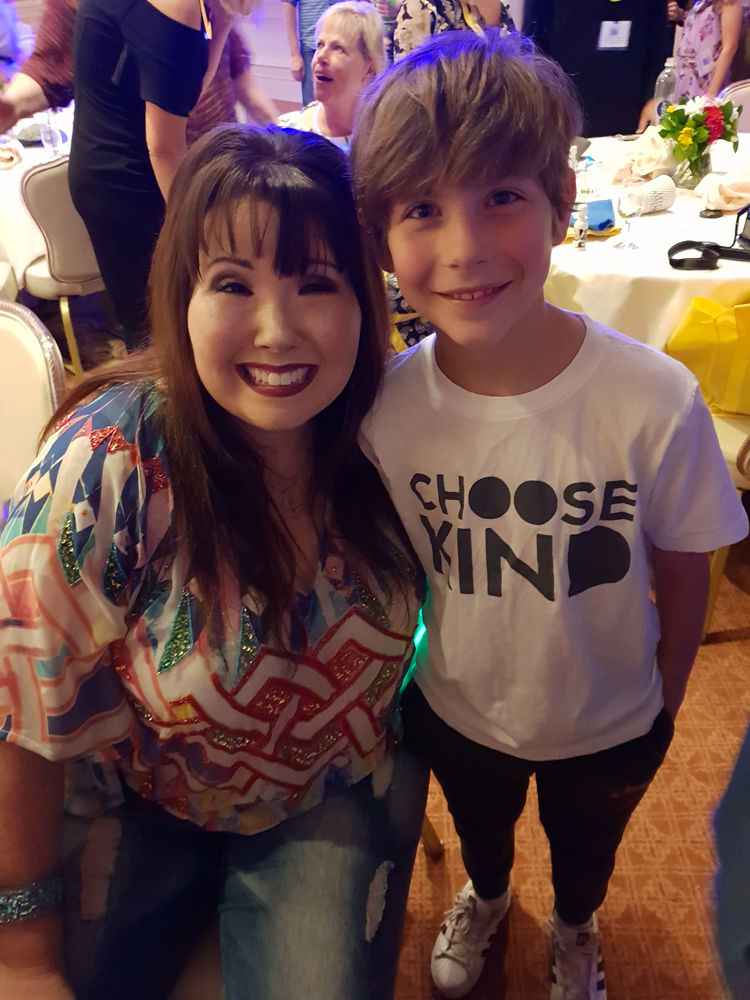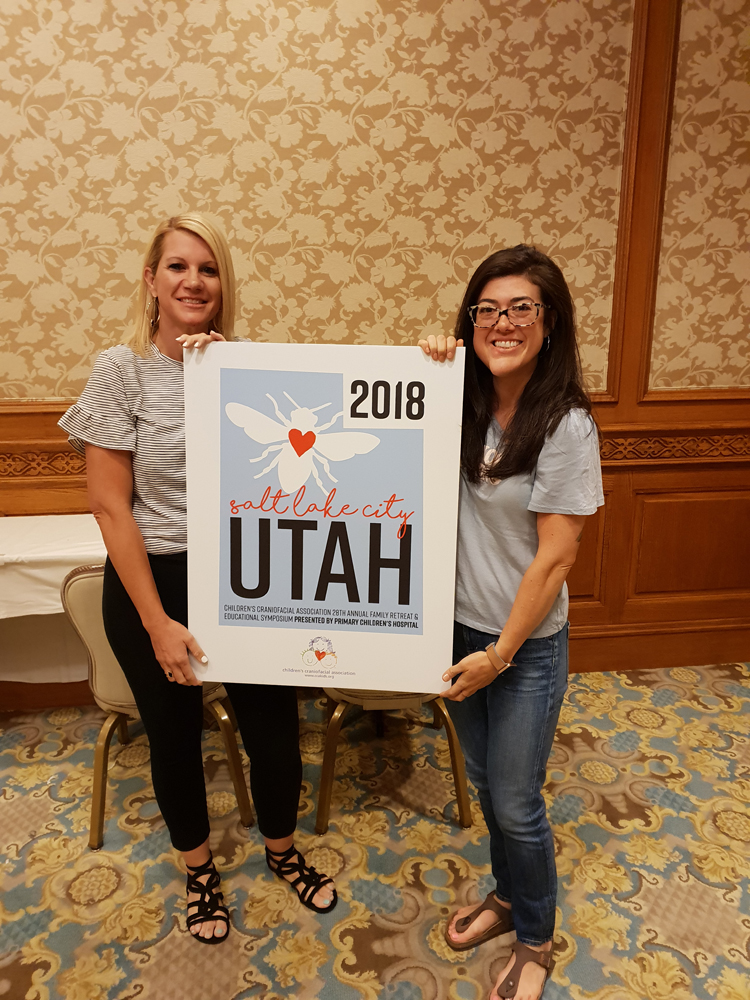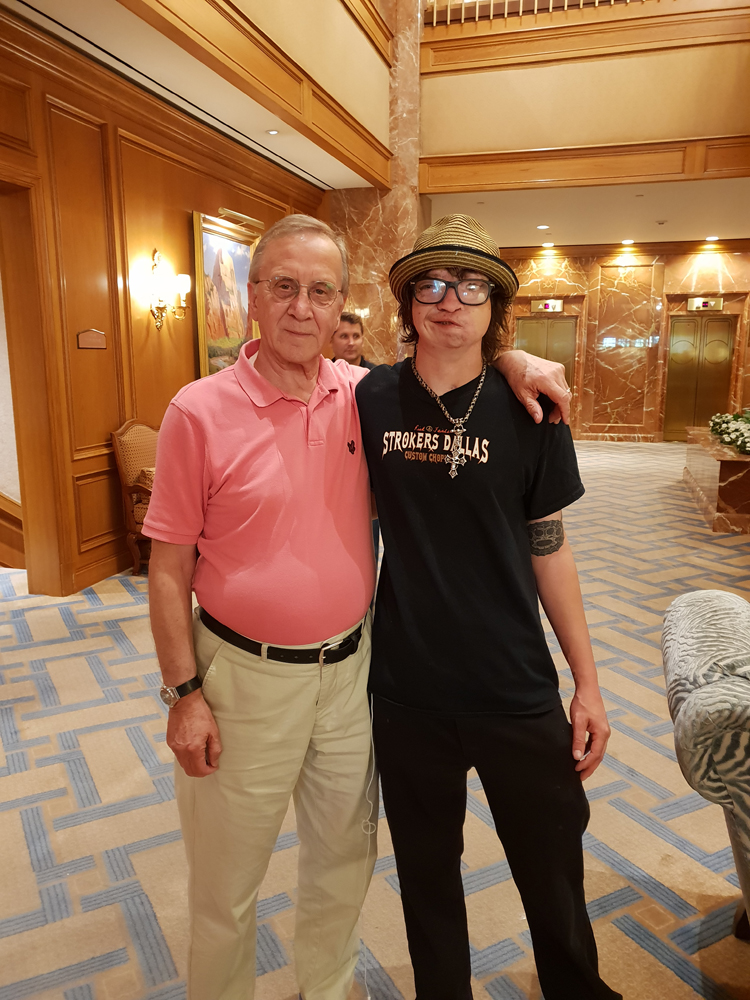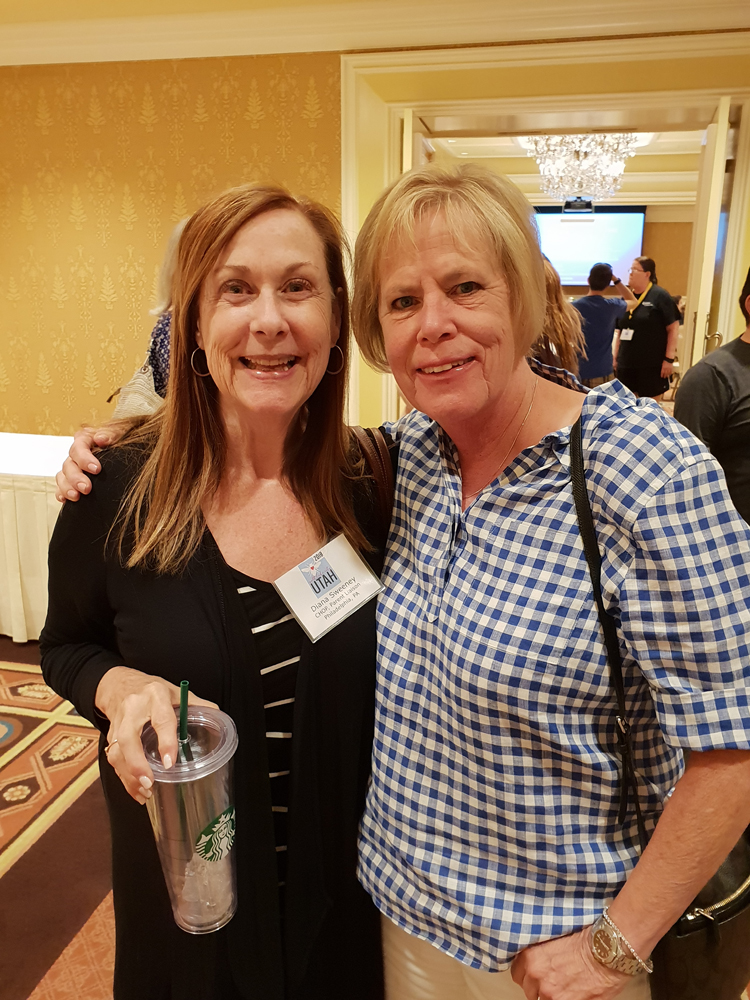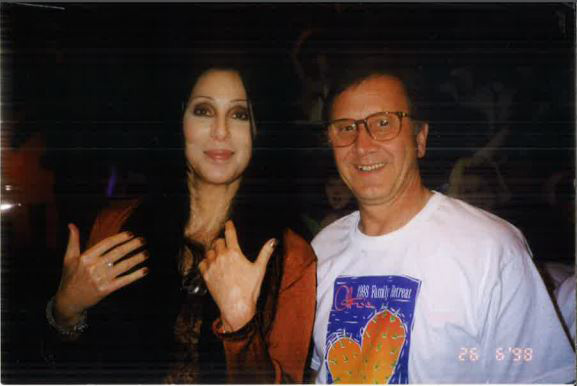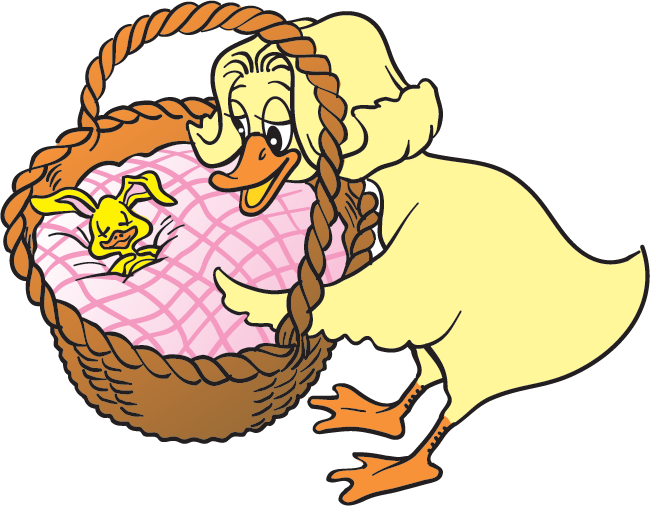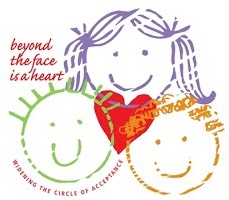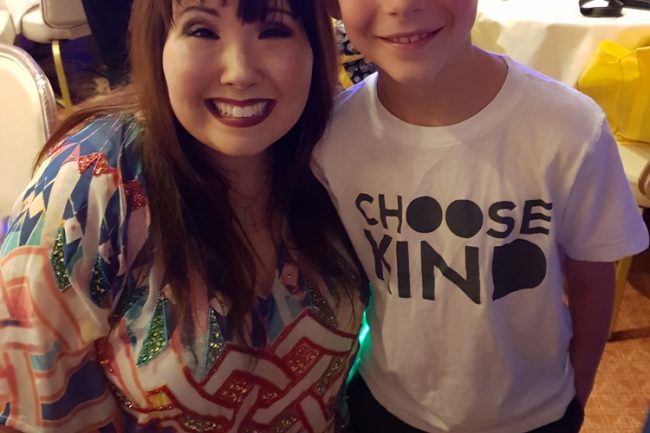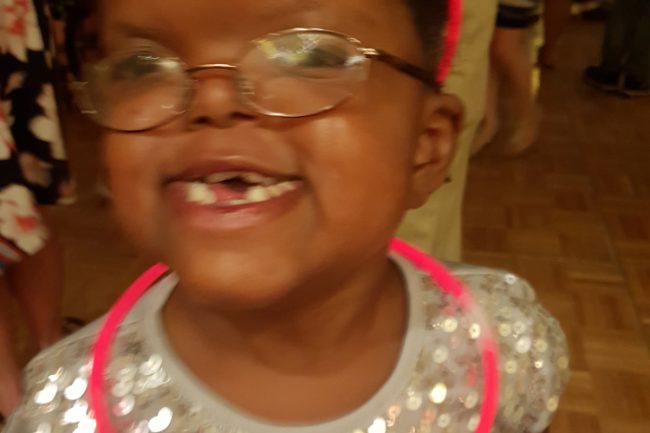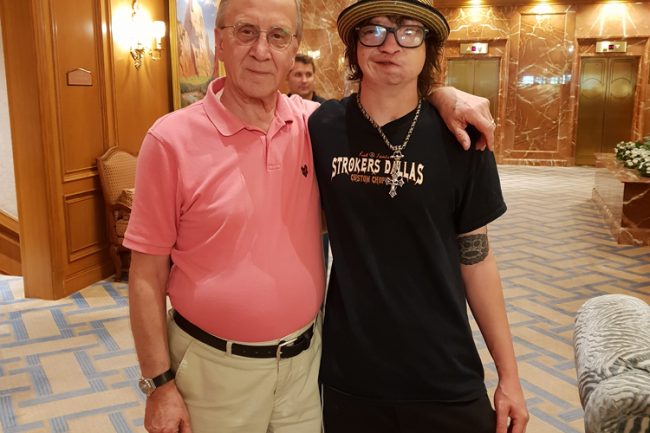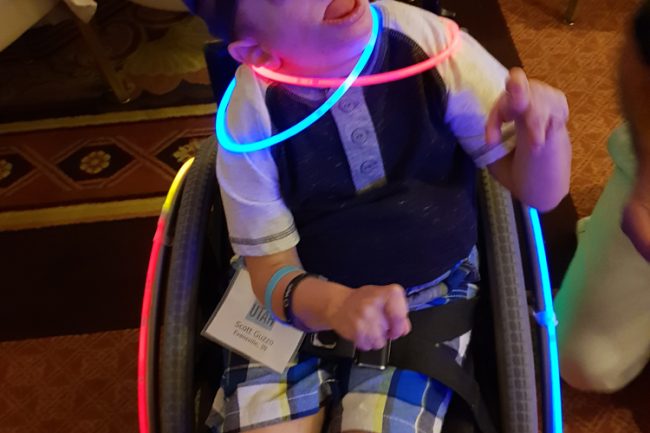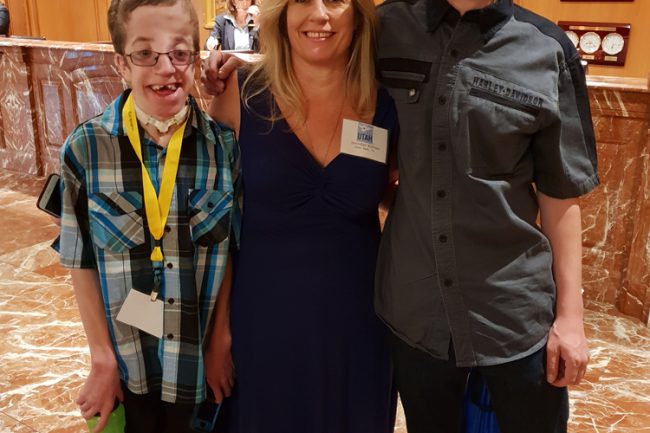The Creation of Jessica BunnyDuck
Jessica BunnyDuck is a character created by author Harry Bird. The story behind Jessica BunnyDuck is simple – it is ok to be different. Harry created the character during his time working as a chauffeur to the stars over a career that spanned many years with clients who included Cher, Jim Carrey, Kevin Costner, Barbra Streisand, Olivia Newton John, Lionel Richie, Mick Jagger and many more.
It was while working with Cher that he first became aware of children with craniofacial conditions. Cher had become involved with the Children’s Craniofacial Association and became their spokesperson. After meeting some of the children at one of Cher’s concerts, he was privileged to meet some of the children and their families again at an annual CCA retreat held in Dallas. He was overwhelmed with how vivacious the children were and how they dealt with their conditions and just got on with life. It was at that moment the seed was planted. Harry wanted to learn as much as he could and became determined to help in any way he could.
Read more...
Harry set about creating a character who was different and yet beautiful, just like the children he had met. With the help of illustrator Roy Budgen, he came up with a loveable character that was a mixture of a bunny and a duck and using his granddaughter’s name as inspiration, Jessica BunnyDuck was created. With the help of his daughter Jacqui, he drew up the first few stories for the series and with the help of David Barr, the first series went to print. Cher also helped Harry with the process of creating the characters and put him in touch with Harvey Greenfield of Commonwealth Toys who developed a prototype BunnyDuck soft toy. With support from his previous clients, Harry wants to develop Jessica BunnyDuck into a global book series that promotes acceptance and awareness of craniofacial conditions, as well as raising funds for children with these conditions.
The story behind Jessica BunnyDuck is simple – it is ok to be different.
A note from Cher…
“I have been touched by the courage of children with facial differences since making the movie, MASK, and became the National Spokesperson for The Children’s Craniofacial Association in 1989.
Jessica BunnyDuck is an adorable character created by Harry Bird. Harry’s dream of publishing stories about the little creature that is not a bunny or a duck, but a combination of both, became a passion after he met the children with craniofacial conditions. He has decided to donate the proceeds from these books to CCA.
Much like children with craniofacial conditions, Jessica BunnyDuck deals with being different and finding a place in which to belong to. I believe all children are worthwhile and precious. I hope you will enjoy special time reading the creative and imaginative BunnyDuck book with your children.”
Love Cher
Harry’s Dream for Jessica BunnyDuck
“I want to use the Jessica BunnyDuck series to promote a message of acceptance of those who are different and to give children with craniofacial conditions a character they can relate to, who gives a voice to the struggles that they face in their daily life. I also want Jessica BunnyDuck to be a global success in order to raise awareness around craniofacial conditions and represent those with these conditions to an international audience…
Read more...
Using the sales of BunnyDuck books and merchandise I want to form the BunnyDuck Foundation which, through a board of directors, will work to allocate funds towards helping children with craniofacial conditions. I would love to start an annual retreat to extend the work that the CCA does to children outside of the USA. The BunnyDuck Foundation will also work to promote awareness, visibility and acceptance of those with Craniofacial conditions.
About the Children’s Craniofacial Association
Children’s Craniofacial Association, a 501(c)(3) nonprofit organization founded in 1989, is the premier organization addressing the medical, financial, emotional, psychosocial, and educational issues related to craniofacial conditions. CCA’s mission is empowering and giving hope to individuals and families affected by facial differences. CCA envisions a world where all people are accepted for who they are, not how they look.
A craniofacial disorder refers to an abnormality of the face and/or the head. Craniofacial differences can result from abnormal growth patterns of the face or skull, which involves soft tissue and bones. A craniofacial condition may include disfigurement brought about by birth defect, disease, or trauma.
Each year, more than 50,00 children in the United States are either born with or develop a craniofacial condition. Their parents and families try to understand what they have and how to help them. Parents struggle to cope with the emotional and physical aspects of having a child with craniofacial anomalies and the social alienation of appearing different.
Individuals with a facial difference are frequently classified by others as inferior, and subjected to grossly unfair assessment of personal worth. Children with facial differences may never have an opportunity to reveal their true selves. The agony of rejection and feelings of inferiority felt by a child often sting more harshly than the pain of countless surgeries, treatments, and rehabilitation. Craniofacial conditions know no socio-economic or ethnic boundaries.
CCA was founded to help these children, and today provides the support they need to lead positive, productive lives.
Why Jessica BunnyDuck, by Dr Mike Twitchen
We live at a time when we aspire, as never before, for tolerance, for freedom from discrimination and for the inclusion of everyone, whatever their race or appearance. Despite these noble aims acceptance of facial difference has never been harder. Social media, “photoshopped” pictures, cosmetic surgery, botox and cosmetic adverts all present us with a standard for facial perfection that we are told we should pursue. We are all made to feel that we should be gorgeous and ageless. What if you are born different? Born with a face that is, to many eyes, disfigured. Born with a craniofacial disorder. How do you find acceptance in our facially perfect world?
Well, it is hard beyond belief and requires a special kind of unseen and unrecognised courage. If asked what a congenital craniofacial disorder is, most people would just think of a cleft lip or palate. In reality, they are much more than this, forming a range of diverse and complex disorders. Names like Apert’s or Crouzon’s syndrome sound benign, their names commemorating the long-dead doctors who first described them, but to an affected child they mean being born with a distorted skull and with eyes in the wrong place. To ignorant eyes to be born non-human. In the past to be banished to a circus freak show.
As a child, if you live in the West, you face complex surgery to reduce your disfigurement. For 12 hours you lie on an operating table whilst your face is skinned by a surgeon, your skull cut into pieces and then reassembled like a jigsaw. Even then your life will be one of people staring and whispering, crossing the street to avoid you and judging you by your appearance. As a child in most of the rest of the world you face a future with no chance of changing your appearance, a life as an outcast, an existence as someone marked by the devil.
How do we change this?
We accept that which we know and because what we know is no longer strange, it is understood.
Fortunately facial disfigurement is rare, but this very fact makes it alien to most people and thus harder to accept. Charities like the Children’s Craniofacial Association work to educate people, work to support affected children and their families, work to make a better future.
What if we learnt to accept facial difference as children? Learnt that looking different is skin deep. Learnt that real beauty lies within.
Jessica BunnyDuck is different. She looks different, but within she is the same as her friends; a happy fun loving child. Reading her adventures you love her infectious joy and how she fits in with her new family. Her bunny ears do not define her, in the end they simply do not matter.
In truth, stories about looking different have been popular for centuries as some of our most beloved fairy stories. The Ugly Duckling, the Frog Prince and Beauty and the Beast all make us love someone who, at first sight, is ugly or even hideous. Good triumphs and, in the end, how the hero looks no longer matters. However fairy stories take place in a different world and a different time, when goblins lurked in caves and dragons flew.
In 1985 Cher won the award for best film actress at the Cannes Film Festival for her portrayal of the mother of a boy with “lionitis” in the film “Mask.” She battles for him to be accepted in mainstream education where he triumphs academically and gains acceptance from his classmates. At the film’s end he dies as a teenager from his condition. The film was based on the life and early death of Roy “Rocky” Dennis. Cher’s performance was from the heart and she went on to support children with craniofacial disorders through the work of the Children’s Craniofacial Association.
Jessica BunnyDuck lives now. She does things children do now. They live in her world and she in theirs. She is a modern fairy story and as she makes children smile and laugh she teaches them to accept that looking different is not important, that the child at school with the different face is just like them. Jessica BunnyDuck has so much to give us all; she only needs to be given the chance to show us.
Dr. Michael Twitchen FFD RCSI (Oral Medicine), MBBS, LMSSA, BDS, LDS RCS(Eng)
